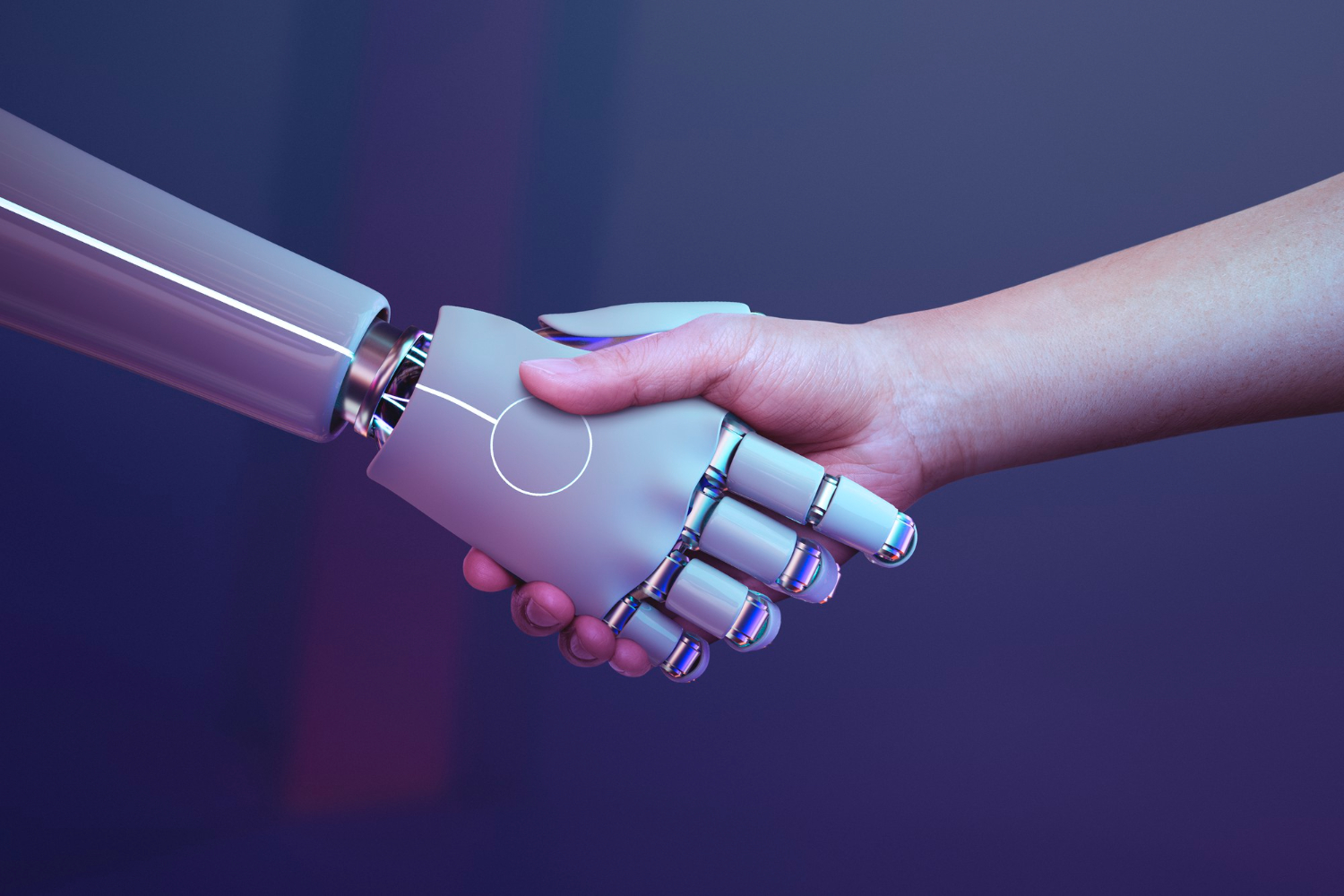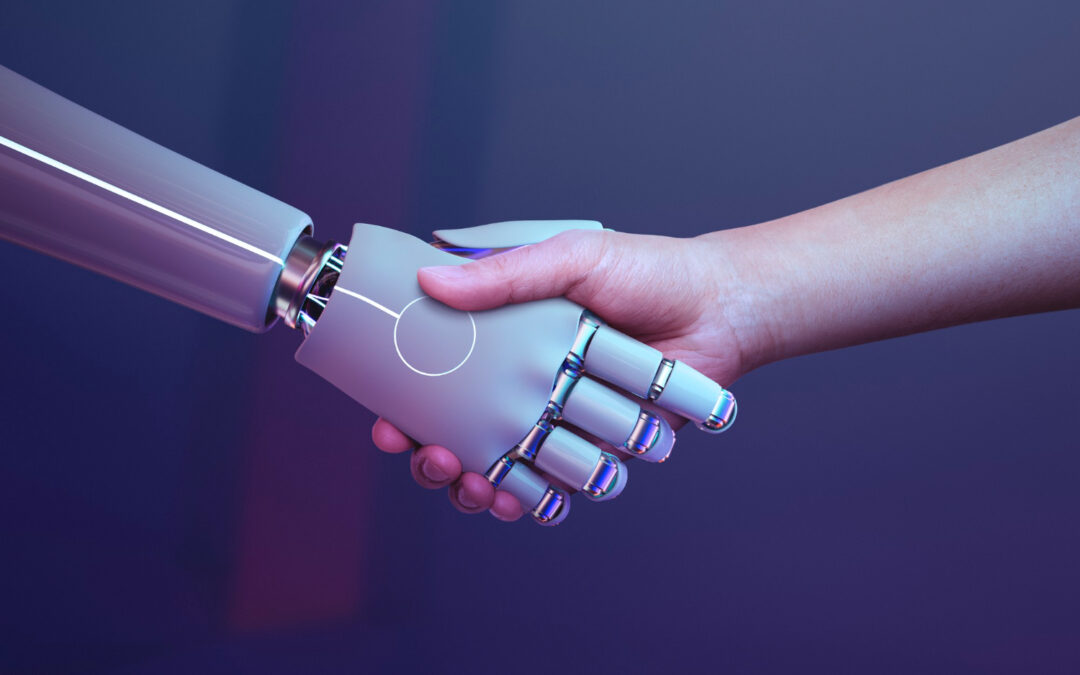BLOG
What jobs could be at risk with ChatGPT?
As a language model, ChatGPT is a powerful tool that can perform a wide range of tasks, from generating text and answering questions to translating languages and summarising documents. While ChatGPT has many useful applications, there are some jobs that could be at risk with the increasing use of language models like ChatGPT.

One industry that may be impacted by the rise of ChatGPT is content creation. With its ability to generate high-quality text on a wide range of topics, ChatGPT has the potential to replace human content writers in some cases. This could be particularly true for jobs that involve generating simple or repetitive content, such as product descriptions or social media posts. However, for more complex content, such as long-form articles or creative writing, human writers are likely to remain in demand.
Another area that may be affected by the rise of ChatGPT is customer service. As ChatGPT can understand and respond to natural language queries, it has the potential to replace some human customer service representatives. For example, ChatGPT could be used to provide basic information or troubleshoot common issues, freeing up human agents to focus on more complex queries. However, for complex or emotional situations, such as handling complaints or providing empathy, human agents are likely to remain essential.
ChatGPT may also impact the translation industry, as it can be used to translate text between languages quickly and accurately. This could replace some human translators, particularly for simple or technical translations. However, for complex or nuanced translations, such as literary works or marketing materials, human translators are likely to remain in demand.
The legal industry may also see some changes with the rise of ChatGPT. With its ability to analyse and summarise large volumes of text, ChatGPT has the potential to replace some legal researchers and paralegals. However, for tasks that require legal expertise, such as interpreting case law or providing legal advice, human lawyers are likely to remain in demand.
Finally, the education industry may also be impacted by the rise of ChatGPT. With its ability to generate educational content and answer student questions, ChatGPT has the potential to replace some teachers or tutors. However, for tasks that require personal interaction or tailored feedback, such as teaching complex subjects or providing emotional support, human teachers and tutors are likely to remain essential.
The education industry is one area that could potentially be impacted by the rise of ChatGPT. With its ability to generate educational content and answer student questions, ChatGPT has the potential to change the way students learn and interact with their teachers.
One example of how ChatGPT could be used in the education industry is in providing personalised learning experiences for students. With ChatGPT, teachers can generate customised learning materials based on each student’s learning style, pace, and interests. For example, if a student is struggling with a particular concept, ChatGPT can generate additional explanations or practice problems to help the student understand the material better.
Another example is in answering student questions. ChatGPT can provide students with quick and accurate answers to their questions, allowing them to learn at their own pace and in their own time. For example, if a student is struggling with a maths problem, they can input the problem into ChatGPT and receive a step-by-step solution. This can help students feel more confident in their abilities and improve their overall learning outcomes.
However, it’s important to note that ChatGPT is not a replacement for human teachers. While it can provide students with information and resources, it cannot replicate the personalised guidance and emotional support that human teachers can offer. In fact, ChatGPT can be used as a tool to assist teachers in providing better learning experiences for their students.
For example, a teacher can use ChatGPT to generate lesson plans, assignments, and quizzes that are tailored to their students’ needs. This can help teachers save time and focus on providing personalised feedback and support to their students. Additionally, ChatGPT can be used to identify areas where students are struggling, allowing teachers to intervene and provide additional support as needed.
While ChatGPT has the potential to change the education industry, it’s important to remember that it’s not a replacement for human teachers. Rather, it can be used as a tool to enhance the learning experiences of students and assist teachers in providing personalised guidance and support. By using ChatGPT in conjunction with human teachers, we can provide students with the best possible education and prepare them for the future.
In conclusion, while ChatGPT has the potential to automate certain tasks and streamline industries, there are some jobs that are likely to remain essential. As with any technological advancement, it’s important to consider the potential impact on the workforce and to take steps to mitigate any negative effects. By embracing ChatGPT as a tool to enhance human capabilities, rather than replace them, we can ensure that its benefits are maximised while minimising any potential risks to jobs and the economy
DOWNLOAD
Our Case Studies
We have a lot of case studies, and we are presenting some best of them which fueled the businesses of our reputed clients.
You can check out our case studies to know much more about our work methodology. Simply fill in the form below and click on the Download Case Studies button to receive a copy.
QUESTIONS YOU MUST ASK
What are lead generation services?
Lead generation services are designed to help you attract the attention of people who need your products or services. We help you build the most effective marketing strategies to ensure you’re attracting the people who are most likely to convert into customers.
What are the benefits of lead generation?
Lead generation can help you expand your market, grow your following, and boost your revenue. It can also improve the quality of your leads and build visibility and awareness for your brand. With the right lead generation services, you can automate your lead generation and reduce or eliminate cold calling.
Why lead generation is key for business growth?
Your business needs to successfully attract new customers and generate more sales. Through lead generation, you will receive a steady flow of high-quality leads that are more likely to convert into sales. Without lead generation, your business will likely struggle to connect with the people who need your products or services most.
